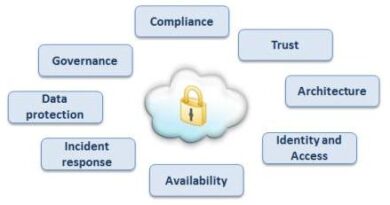What do you understand by Good Data Quality?
Before you can understand data quality’s importance, you have to answer another question: what is data quality? The definition of data quality is always up for debate, as it’s a complex and multifaceted concept. Generally, data quality is a measure of how accurate, and consistent your data is. It’s determined by how well your data meets the needs of your business and users. Poor data quality can lead to wrong decisions, wasted resources, and lost revenue. Data quality is important for several reasons. Accurate data is necessary for making sound business decisions. Data that is not complete or up-to-date can lead to inaccurate results. Good data quality can improve process efficiency and help to avoid data-related problems.
Data is a critical part of businesses. It’s used to make decisions, track progress and trends, and identify opportunities and threats. Poor data quality can lead to wrong choices and hamper your ability to compete and grow your business. Keep reading to learn more.
What factors can affect the quality of data?
Data quality is a critical component of any business or organization. The quality of the data can have a significant impact on the success or failure of the enterprise. Many factors contribute to data quality, including completeness of the data, accuracy of the data, timeliness of the data, usability of the data, relevance of the data, reliability of the data, and data integrity.
The completeness of the data is the first factor to consider when assessing the quality of the data. If the data is incomplete, it can be difficult to make informed decisions. The accuracy of the data is also important. If the data is inaccurate, it can lead to inaccurate decisions and incorrect information. In addition, if the data is not timely, it can be irrelevant and unusable. The usability of the data is also essential. If the data is not easy to use, it can be difficult to get the information you need. The relevance of the data also plays an important role. If the data is not relevant, it can be useless. The data must have reliability and integrity. If the data is unreliable or lacks integrity, it can be misleading and inaccurate. Establishing and enforcing data quality standards is the best way to ensure data quality.
Make sure you are entering data accurately, and double-check your work to ensure accuracy. Also, be sure to use valid data. Invalid data can lead to inaccurate results and can be challenging to work with. It’s important to establish and enforce data quality standards. This will help you ensure your data’s accuracy, completeness, and validity. Having data quality standards in place will also help you ensure your data sources’ quality. This can help you to make better decisions and achieve your goals. It’s important to note that data quality is not static; it must be constantly monitored and maintained. In addition, data quality must be tailored to meet the specific needs of the organization.
Why is data quality important?
Data quality is important because it measures how well your data meets the needs of your business. High-quality data is reliable, consistent, and accurate. Low-quality data can lead to inaccurate business decisions, missed opportunities, and lost revenue.
High-quality data is the lifeblood of any business, and it’s essential for making good decisions. Without accurate, timely data, companies cannot hope to succeed. There are many reasons why high-quality data is essential. It ensures that businesses have the most accurate picture of what is going on in the marketplace. With good data, companies can make informed decisions about what products to offer, what prices to charge, and where to allocate their resources. High-quality data enables businesses to track their progress over time. Companies can identify trends and patterns by analyzing past data and adjusting their strategies accordingly.
More
High-quality data is essential for better decisions in a fast-paced, constantly changing world. The last thing any business wants is to make decisions based on inaccurate or outdated information. With high-quality data, companies can be confident that they are making the best choices for their future.
Data quality is also important for compliance reasons. Businesses are required to adhere to several regulations, such as the Health Insurance Portability and Accountability Act (HIPAA), the Gramm-Leach-Bliley Act (GLBA), and the Sarbanes-Oxley Act (SOX). These regulations require businesses to protect specific data types, such as personal and financial data. Poor data quality can lead to non-compliance and fines.
Ultimately, data quality is critical because it impacts every aspect of your business. Good data quality leads to accurate decisions, compliance with regulations, and better marketing results. Read more in wpc2027.




